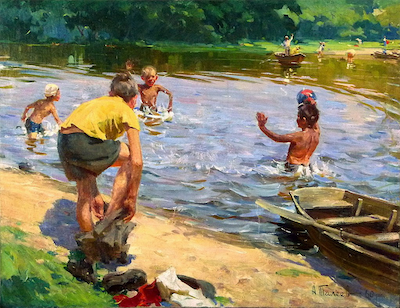Dr David McIlroy is Chair of Trustees at KLC. He is a practising barrister and author of The End of Law: How Law’s Claims Relate to Law’s Aims.

The Golden Legend is a compendium of lives of the saints which was very widely read in the late Middle Ages. It portrays many saints as seeking out the crown of martyrdom and as priding themselves on abstaining from sex, from food and from any other kinds of worldly pleasure. Wearing hair shirts and flagellating themselves, some are even praised for seeking out discomfort and pain. Read through modern eyes, such practices seem masochistic, evidence of mental health issues rather than proof of godliness. Something seems to be wrong.
God made a good world, full of good things for human beings to enjoy. Refusing to enjoy those gifts, preferring dark to light, cold to warmth, pain to pleasure, can amount to a rejection of God’s gifts or a denial of the goodness of the world. In contrast to Plato’s thought, the Bible affirms the goodness of materiality. Jesus sanctified our bodies by becoming incarnate.
On the other hand, Christian teaching is full of warnings that if we indulge our bodily appetites they can get out of control, with lust, greed and gluttony making up three of the seven deadly sins. The disciplines of chastity, simplicity and fasting counteract these temptations by bringing our appetites under our control. Pornography and fornication ultimately dull our sexuality. Greed traps those who chase after money in a never-ending competition to catch up with or to overtake our neighbours in our displays of wealth. Gluttony harms the body which food is supposed to nourish.
It was a repeated theme of Augustine’s teaching that Christians need to learn to love things in the right order (On Christian Doctrine, I.27-28; City of God, XXII.22). In his Sermon 335C, he said:
“I am not saying that you should have no loves; I simply want your loves to be properly ordered. Put heavenly things before earthly, immortal things before mortal, everlasting things before transitory ones. And put the Lord before everything, and not just by praising him, but also by loving him. It is easy enough to give him preference when it comes to praise. But then temptation comes along. Then, I ask you, do you show different priorities in your love from the preferences you showed in your praise?” (Translation from Atkins, E. M., and Dodaro, R. J. eds., Augustine: Political Writings (CUP, 2001))
It is in this light that we have to understand Jesus’ difficult saying in Luke 14:26, “If anyone comes to me and does not hate father and mother, wife and children, brothers and sisters – yes, even their own life – such a person cannot be my disciple.” It is not wrong to delight in our family and friends, to rejoice in the good gifts of creation that give us bodily pleasure, to thank God for material pleasures, so long as these things enhance our gratitude and worship of God and do not become substitute objects of worship in their own right.
Instead of mortification of the flesh as an end in itself, Christians should be learning a rhythm of abstinence and celebration, one which sensitises us to the richness of the gifts which God has lavished on us. Chastity leads to intimacy; simplicity to rediscovering what we really need, and fasting to the joys of feasting. These disciplines humble us and so open us up to true fellowship with others. Richard Foster’s Celebration of Discipline remains a classic guide as to how to build these disciplines into our lives.
Let us, therefore, rejoice once again in the Christian disciplines, not because we are trying to score spiritual points by rejecting the pleasures God has given us to enjoy, but in order that through chastity, simplicity, and fasting we may open ourselves to intimacy with God and fellowship with others.

The Kirby Laing Centre for Public Theology in Cambridge. Charity registered in England and Wales. Charity Number: 1191741
Kirby Laing Centre, The New Mill House, Unit 1, Chesterton Mill, French’s Road, Cambridge, CB4 3NP
© 2022 The Kirby Laing Centre for Public Theology in Cambridge